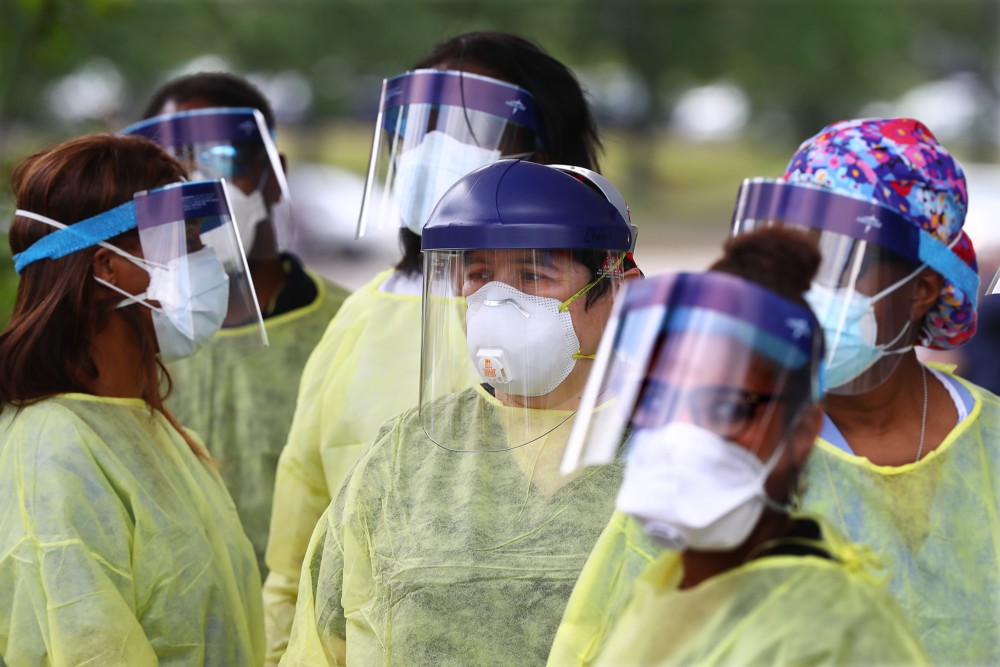By Alison Bosma
Milford Daily News, Mass.
WWR Article Summary (tl;dr) A new report reveals many existing inequalities faced by women and girls have worsened since the pandemic hit.
Milford
Loss is a theme Jen Maseda hears often in her daily calls with women in the region.
“We are seeing a significant disruption in the lives of the women that we speak to,” owing to the coronavirus pandemic, she said.
Maseda is the founder and CEO of She’s Local, the Natick-based organization that, among other things, puts on annual conferences in Massachusetts, including one in MetroWest, to inspire and connect women.
The group has also been hosting daily virtual chats since the pandemic confined many people to their homes.
The women she talks to are experiencing loss of loved ones, and the inability to be there for ill parents.
“The women in our region are very close to their aging parents,” Maseda said.
They are losing their jobs, and for the 45 percent who identify as entrepreneurs, losing customers. With children and spouses at home, many women who are the caregiver in their family are also losing time to take care of themselves.
A report from the Massachusetts Commission on the Status of Women released earlier this month found that, statewide, COVID-19 and “related policy” have worsened already existing inequalities faced by women and girls.
“If you’re already starting at a disadvantage, and the situation becomes exacerbated, then you’re at a further disadvantage,” said Audrey Hall, a member of the commission and its MetroWest regional liaison. “The ripple effect is further detrimental throughout society.”
Women are concerned about access to health care and financial resources, as well as the ability to pay bills and get food, according to the report.
Pregnant women are afraid about issues surrounding birth, it goes on to state, elderly women are isolated, youth are cut off from support services, incarcerated women cannot socially isolate to steer clear of the virus, and domestic violence incidents have soared.
“When you talk about domestic violence right now, you have many women stuck at home with their abusers,” Hall said. “If they want to seek shelter outside their homes, where is that shelter going to be? How are they going to communicate that danger when they don’t have an opportunity to separate from their abuser in the close-knit quarters of a home?”
The report does not compare the impacts of the virus on men and women.
It looked at 2,523 survey responses from 250 cities and towns across Massachusetts, as well as a public hearing with 100 participants.
Forty-three percent of the survey respondents said they are anxious and depressed.
“I’m fine,” said Marlborough resident Debra Diamond, who struggled for four weeks to get the unemployment she was due after the 99 Restaurant laid off her and several of her co-workers because of the pandemic. “A little depressed, but who isn’t? I’m a little aggravated, but who isn’t? Who isn’t going a little stir-crazy?”
Diamond doesn’t think she’s worse off because she’s a woman, saying everyone — men included — seem to be pushing through the same struggles. She’s worried, but optimistic.
That attitude is the same one Maseda said she sees in her daily calls.
“Hope is something that is brought up every time we have a conversation with a group of women,” she said. “There’s this pivot mentality where women are getting creative.”
Entrepreneurs are helping each other figure out how to set up shop online, mothers are pushing past the difficulties of increased caregiving to reconnect with children and spouses, and people are helping others in need.
“I’m seeing a lot of support of how we can support our friends and our families, but also strangers,” she said.
MetroWest is particularly adept at helping strangers, she said, and engaging online to do so.
Some women are even seeing promotions at their jobs, she said, as the pandemic highlights their ability to manage unconventional work schedules.
“Businesses are now relying on this flex schedule,” she said, “and so they’re noticing women are able to manage this flexible schedule in a very positive and impactful way.”
The state report identifies several areas for immediate attention that would likely help men as well as women. They include better educating residents on how to get federal stimulus funds, exploring assistance for student loan payments, state benefits, and mortgage payments, looking into out-of-hospital birth options, ensuring better access to reproductive health care, and expanding access to “quality” health care in general.
“Although people are talking about a lot of the impact of the virus, being able to look at actual data …. gives legislators data to back recommendations on,” Hall said. “We believe …. that data is going to … accelerate efforts to create legislation and identify additional resources to help address some of these issues.”
Maseda said the pandemic is not the first major obstacle women have faced and it won’t be the last.
“I see inequalities and discrimination every day,” she said. “Do I think it’s going to exacerbate the problem? Yes, but …. we will rise up as we always do.”
___
Distributed by Tribune Content Agency, LLC.














































































































































































































































































































































































